How concerned about safety are you for your next big adventure?
After the entire world shut down in 2020, chances are, safety is at the forefront of your mind.
It’s great that safety has a seat at the table when it comes to traveling because safety should be your number one priority when you’re traveling.
Traveling can be a lot of fun, but it also has its fair share of dangers. These travel safety tips will help you stay safe and healthy during your trip, so without further ado, here’s what you should do.
This page contains affiliate links. This means that if you click a link and buy one of the products on this page, I may receive a commission (at no extra cost to you!)
Travel Tips for Peace of Mind
1. Always Pack a Medical Kit (First Aid Kit)

The first rule of traveling is to be prepared for anything. You should always pack a medical kit that includes everything from bandages to antiseptics. There should be a travel-sized version of everything you have in your medical kit at home.
Pack these items in your carry-on luggage and your day bag to make it easier for you to access them when they are needed most.
A few must-haves for your travel safety kit:
- Pain-relieving herbs or medicine
- Allergy medication
- Binding agent (for stomach aches after eating something bad)
- Antibacterial wipes
- Hand sanitizer
- Sunscreen
- Baby wipes
- Sterile gauze pads or wrap bandages
- Blister patches (for your feet)
- Cotton swabs and Q-tips
- A stash of money
Packing these items will allow you to enjoy your trip without having to worry about being sick or injured.
A few things not included in a medical kit (but should be):
- Your vitamins and prescription medication (if you have any)
- Extra contacts or glasses if needed
- Extra under clothes
- Emergency toiletries (toothbrush, toothpaste, and deodorant)
Be prepared for anything! When you’re traveling, you’ll be doing things you don’t normally do on a regular basis. It’s a good idea to be prepared, so you can travel safely.
2. Bring an Extra Phone Charger or Battery Pack

A phone has the incredible ability to die when you need it the most!
It’s important to always have a backup charger or an external battery pack with you in case your phone dies.
Your phone will be doubling as your GPS, your research tool for local eateries and attractions, and your lifeline to your family at home. Having a portable charger can help you stay connected without worrying about battery life!
Get a small, inexpensive, lightweight, powerful, and portable charger with solar power charging capabilities as an added feature.
Now, you’ll be able to charge your phone in any situation and never have to worry about the battery dying on you when it’s most needed.
Many people forget this important travel safety tip until their phone dies while in the middle of a jungle exploration!
Charge both your phone and your portable charger while you’re sleeping at night. When you’re ready to go in the morning, you’ll have a fully charged phone and backup charger.
3. Lock up Your Important Documents
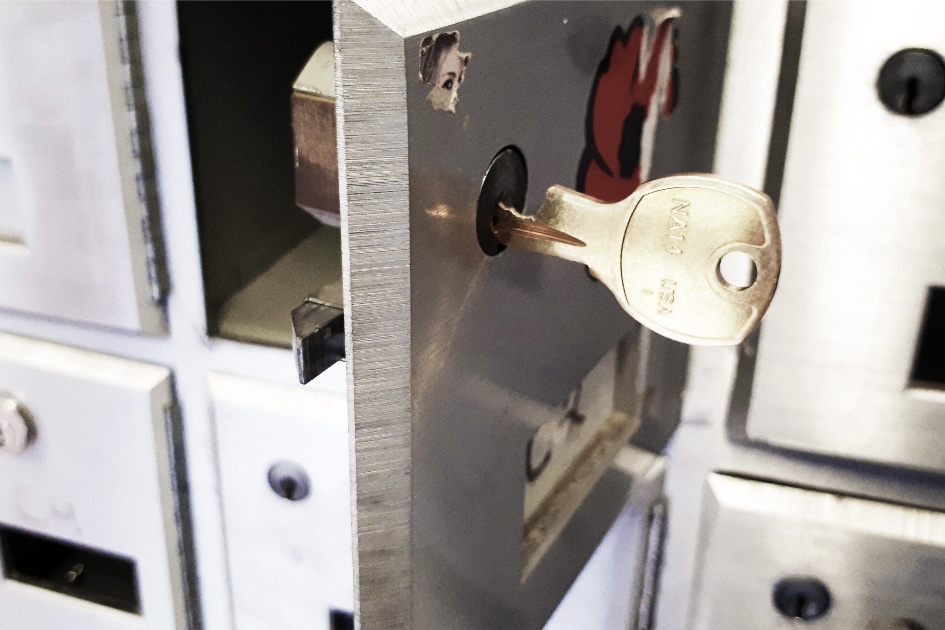
Pre-Trip Travel advice: Before you leave home, scan and upload your passport, birth certificate, license, and all other documents to prove your identity to your Google Drive, Dropbox, and the files folder in your phone.
When you get to your destination, check if there is a safe in your room. Most hotels and Airbnb provide a safe for you to utilize.
Use it to store your passport, credit cards, and other important documents traveling with you.
Never leave them out in the open where they can be stolen.
Do not travel daily with documents you do not need. If something happens — like theft — you may lose all your important files.
Carry only what you need in your day bag like money, water, sunscreen, camera, phones, and portable chargers. Do not make it easy for a pickpocket to steal your belongings, use the big part of your backpack and day bag to hide your valuables under a piece of clothing.
A rule of thumb: If you have a hard time retrieving something from your back, a thief will have an even harder time.
As a traveler, it is your responsibility to take care of yourself and protect what belongs to you!
4. Check for Travel Warnings and Vaccination Requirements

Some countries require certain shots before you can visit. During your pre-trip research, check with the state department’s website for guidance on which vaccinations are needed.
Information changes all the time, so check more than once. Know before you go!
It would be a nightmare if you arrived at your destination only to be placed on the next flight returning home because you neglected to check the country’s travel requirements.
If you don’t see your destination listed on the state department’s website, visit their travel page or call them. Do whatever it takes to make sure all your boxes are checked.
Consider getting travel insurance! You may not need it, but in case of an emergency, you’ll be glad you have it.
Keep in mind that most countries outside of America have cheaper health care, so you might be able to pay cash for a visit to the hospital.
5. Be Aware of Your Surroundings

As a traveler, it’s easy to get caught up in the excitement of new sights and sounds. You might not be as aware as you normally are while at home because you’re so focused on sightseeing or trying a local dish.
While traveling, make sure that you are aware of your surroundings. Keep an eye out for suspicious people, don’t be fooled into thinking that you’re safe at all times. Some people abroad prey on wide-eyed tourists, so don’t make yourself an easy target.
Travel safety tips to live and travel by:
- Never share personal information like where you’re staying or the duration of your stay with a stranger.
- Avoid wearing expensive jewelry and watches when traveling — they can be easy targets for thieves.
- Bring an ID or a passport card with you everywhere, but leave your passport book in the safe at your lodging location.
- Don’t share everything on social media.
- Avoid being inebriated to the point that you are unable to determine what’s happening around you.
- Have a plan in case you get lost.
- Wear your purse or your day bag in front of you.
- Put away your camera if you’re not using it.
- Always use cash and bring one credit card, and use the credit card for an emergency only.
- Have a stash of money in different compartments, such as a small amount in your pocket, some in your socks, some in your wallet, and somewhere else you think it is safe.
- Keep safety information like exit strategies, emergency numbers, or the phone number for your embassy with you.
- Know where the nearest hospital is before any emergencies happen so you can make it there as quickly as possible!
- Have extra snacks or food in your bag to curb your hunger in places you might not be able to find food or water.
- Inform someone not traveling with you about your travel plans in case something happens while you’re away.
6. If You’re Going Out at Night, Avoid Walking Alone

The best advice I can give night owls is to trust your instincts! If something feels off, it’s probably off.
Ask the receptionist or the Airbnb host how safe the area and streets are at nighttime.
If you’re traveling solo, don’t walk alone at night, especially if it’s not safe for you to be out in the dark.
Always put your safety first. Never let the lure of having fun in a foreign country persuade you to take a risk that’s not worth it.
If an emergency should arise while traveling abroad, it’s always a good idea to have the contact information of a trusted friend or family member who lives nearby!
7. Don’t Leave Valuables Unattended in Public Places

When visiting a crowded market or outdoor festival, don’t leave your belongings unattended.
It’s easy to get caught up in the excitement and not notice when someone is trying to steal from you.
Keep your valuables close — wear them or put them securely under your clothes in your backpack.
Doing so will make it harder for thieves who might be looking for an easy target.
In airports, bus terminals, and train stations, always keep an eye on your belongings if and when you put them down.
When traveling abroad, use small locks to secure the zippers on your backpack.
Have photographic proof of your travel information with you on your day trip. You never know what can happen and when you’ll need it.
Remember that in a foreign country, you are vulnerable because of a lack of information. Predators know that and will exploit this vulnerability to their advantage.
Travel safety can’t be emphasized enough when you’re traveling abroad — it’s always important to stay alert and vigilant of your surroundings!
Your belongings are at risk of being snatched if you don’t make a conscious effort to keep an eye on them.
8. Watch Out for Scams
Some scams are so convincing that you might not realize until it’s too late.
When traveling abroad, be wary of offers, specials that seem too good to be true, and deals that seem too risky.
This is especially true when you are a tourist and not fluent in the language. It can be challenging to know what’s real or fake, so take caution!
Be wary of offers for free tours from strangers outside your hotel or Airbnb location
When searching online, make sure that you’re on an official site, and the said company is reliable.
Don’t make any purchases unless you’re sure they are from a reputable seller!
Use PayPal as a safety measure when making a purchase online.
In person, pay with cash and not with credit cards. This way, if anything goes wrong, it’s less of an issue, and your card information will be secure.
Be wary if someone approaches you on the street inquiring about your length of stay, or your plans for the day.
They might be trying to sell you a tour that offers a free drink at the end.
Don’t be an easy victim! Use your common sense and trust your instincts when it comes to safety in a new area, city, or country.
Safe travel means being prepared for anything!
- Have a safety plan to help you get out of any situation.
- Keep your valuables close and secure so they don’t fall into the wrong hands.
- Never put yourself in risky situations that can be avoided.
9. Research the Destination
Know what to expect, but keep an open mind and be ready to embrace the unexpected.
Not everything will go according to plan, but that’s the beauty of an adventure!
If you do your research ahead of time — during your pre-trip preparation — and know what areas to avoid, what scams to look out for, and what safety precautions you can take in the event that something goes wrong, you’ll be more prepared to handle anything.
Know where the nearest embassy and hospital are located and how long it would take to get there.
- Research the weather and the natural disasters that often occur at your destination.
- View a map of the streets around the area you’ll be staying.
- Learn key phrases of the language so you can ask locals for directions if you get lost.
To have the best travel experience, make sure that you’re as prepared as possible before embarking on your journey.
10. Travel With Someone Else If Possible
It’s always a good idea to travel with a companion, especially someone who knows the area or destination, for added safety.
Give your travel information — where you’re staying, what time you’re traveling, when you’ll be arriving, and any other relevant information — to someone trustworthy.
Don’t go at it alone — make sure that your loved ones, such as friends or family, know your travel plans and where you are at all times!
In the event that something happens while traveling abroad, it would be helpful for them to have this information so they can contact authorities or get help.
Travel Safely!
Travel safety is a priority for any traveler, and it should be considered as one of the most important factors when you’re planning your next trip.
Always expect the unexpected. Especially if you’re traveling alone or with other travelers, prepare accordingly for anything — including natural disasters, terrorism, or even a robbery.
Copy, save, review, and share these travel safety tips with everyone you know before they embark on their next journey!
A safe trip is a great trip. Stay safe and keep traveling!
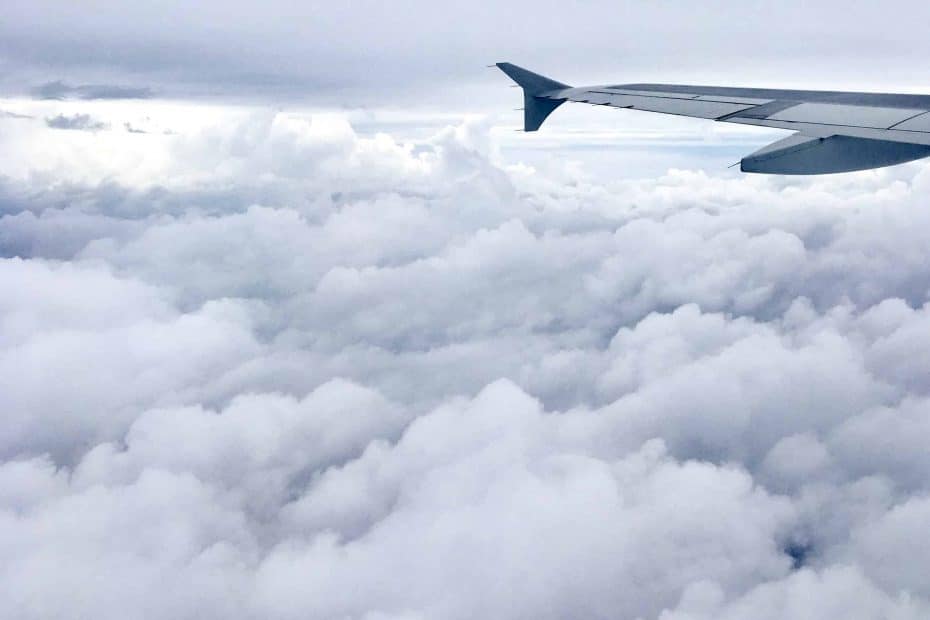


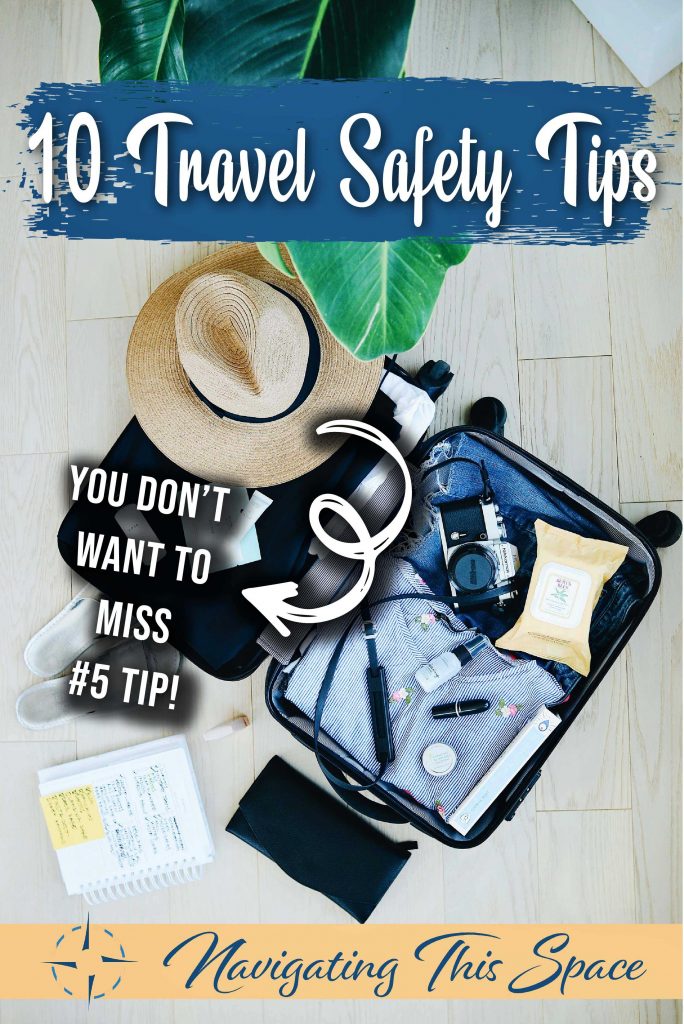
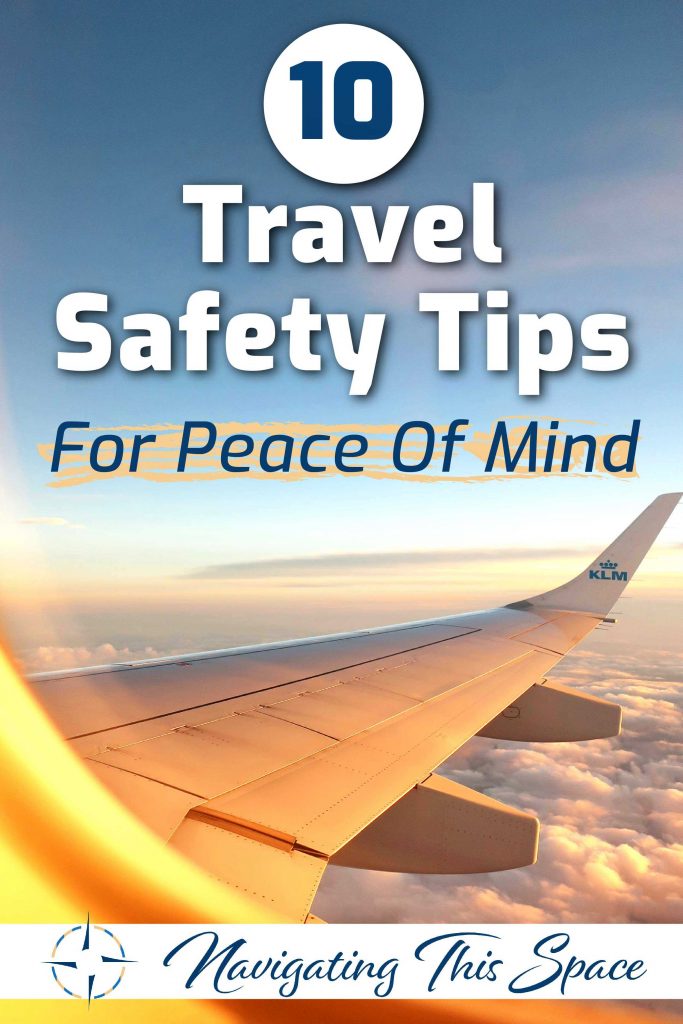

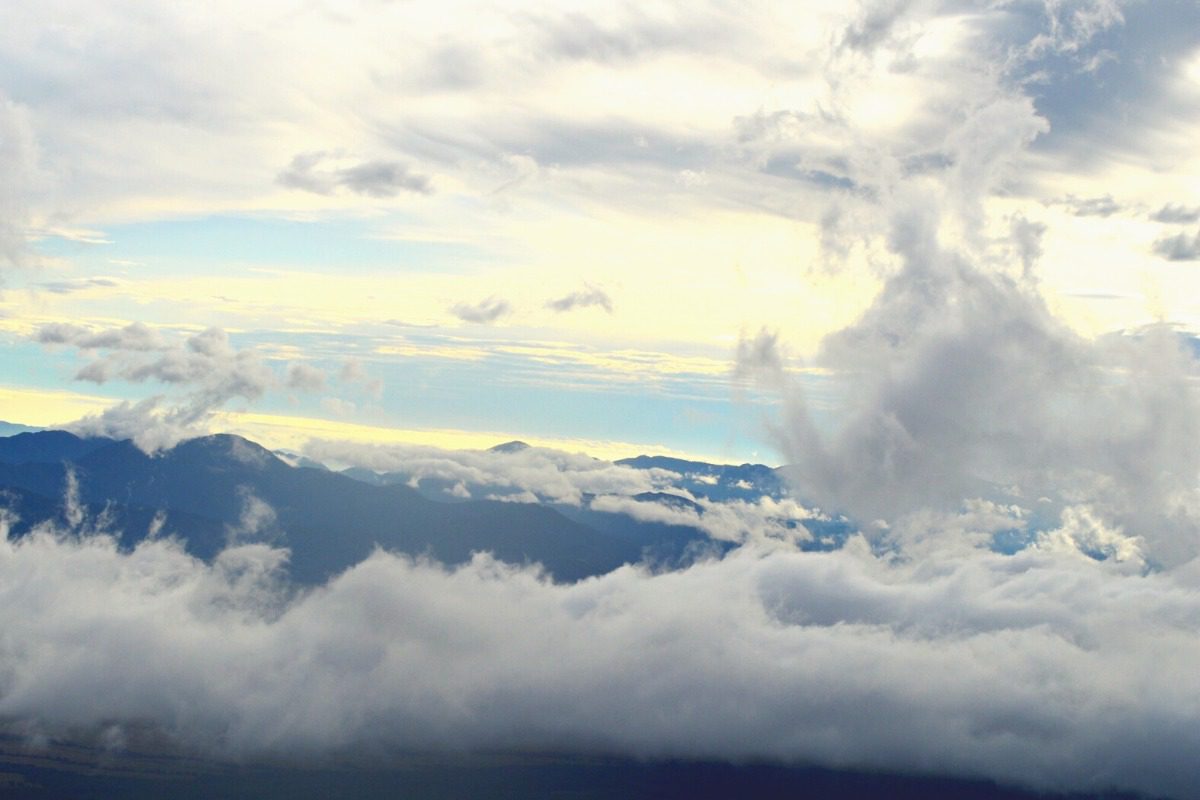
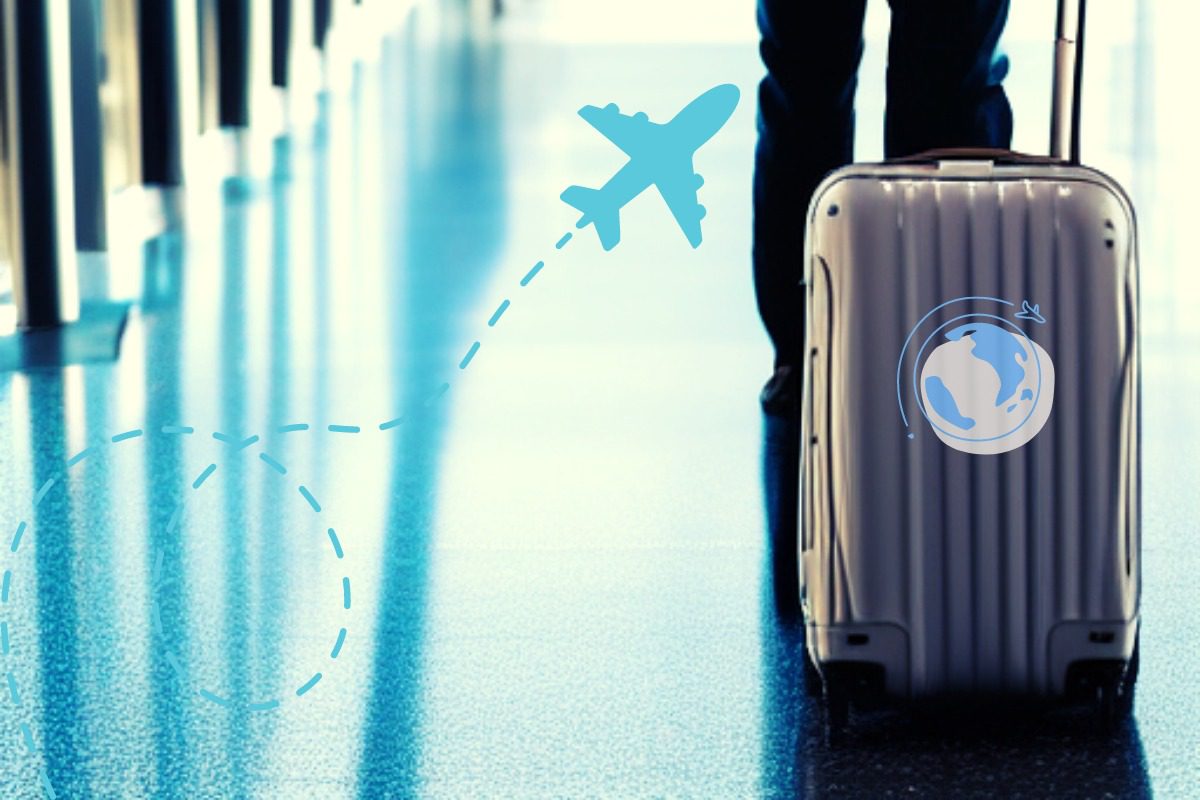
Love traveling so this was pretty helpful. Great read .